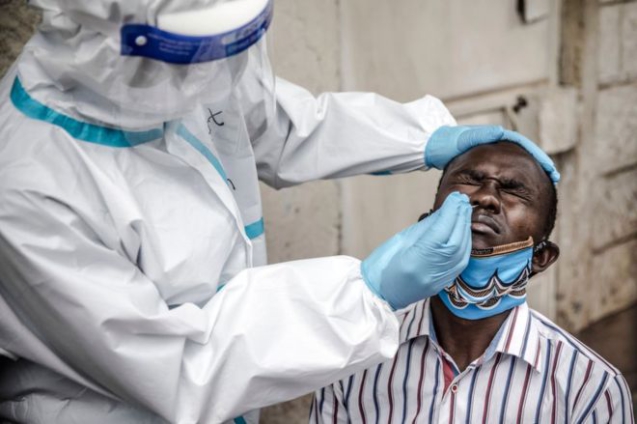August 14 marks six months since Covid-19 was first detected in Africa. While the virus has raced through many other regions of the world, the pandemic’s evolution on the African continent has been different.
Preliminary analysis by the World Health Organization (WHO) finds that an exponential surge in cases which peak about two to three weeks later is not occurring in Africa.
Instead, many countries are experiencing a gradual rise in Covid-19 cases and it is difficult to discern a specific peak. Transmission patterns also differ between countries, but more importantly within countries.
At the onset, Covid-19 mainly affected capital cities. However, the virus is now moving from high density urban areas to informal settlements and then onward to rural areas that have a lower population density.
“In Africa, curbing Covid-19 is a marathon and not a sprint,” said Dr Matshidiso Moeti, WHO Regional Director for Africa.
“We are observing multiple local outbreaks each with their own infection patterns and peaks. It is by bolstering the response at the community level that we will win this race. The Covid-19 response must be integrated into the fabric of every health district.”
In the past six months, countries have made a lot of progress. Many African governments were quick to impose lockdowns and key public health measures that helped to slow down the virus.
Over time preventive, diagnostic and treatment measures have been strengthened. All countries can now diagnose Covid-19, with 14 performing over 100 tests per 10,000 population.
Production of oxygen, critical for severely ill Covid-19 patients, has also considerably increased, with the number of oxygen plants in the region rising to 119 from 68 at the onset, while the number of oxygen concentrators has more than doubled to over 6000.
A recent WHO assessment based on self-reporting by 16 countries in sub-Saharan Africa found that the countries improved their capacity to respond to Covid-19.
WHO measured countries’ readiness in a range of areas including coordination, surveillance, laboratory capacity, case management, infection prevention and control.
Six months ago, the score was 62% and now it is 78%. While much progress appears to have been made at the national level, at the district level countries are generally lagging behind.
The scores for coordination (38%), infection prevention and control (46%) and clinical care for patients (47%) are all particularly low at the district level.
While progress has been made, it is important that governments step up readiness and response measures, particularly at the subnational levels. With the loosening of movement restrictions, there are risks that the virus may spread even further into remote areas of the continent.
“Not only must we keep up with the evolving trends, we must also anticipate, predict and act faster to head off potentially disastrous outcomes,” said Dr Moeti.
“Areas of high transmission as well as localities with relatively fewer infections both deserve attention. In short we must be strong on all fronts.”
WHO has worked with partners to provide technical support, training and essential medical supplies including the delivery of more than 2.1 million testing kits and the training of around 100,000 health workers.
WHO is also supporting countries witnessing a large number of COVID-19 infections. Last week, the first members of a surge team arrived in South Africa.
WHO is also increasing support to other countries that have requested urgent assistance by mobilizing more technical experts on the ground and by scaling up training to build local capacity, particularly at the provincial and district level.
Latest Stories
-
Below-average rains threaten Ivory Coast’s cocoa mid-crop, farmers say
41 minutes -
Militants attack Nigerian army base, troops missing, sources say
53 minutes -
Man caught with over 200 rounds of ammunition, bulletproof vest, military gear in Ashanti Region
1 hour -
‘They think they’ve broken the Judiciary’ – Minority blasts gov’t over constitutional breach
1 hour -
Burkina Faso military accused of killing over 100 civilians in ‘massacre’
2 hours -
Care system will suffer under UK immigration plan – Forbes
2 hours -
Sean ‘Diddy’ Combs used fame and violence to abuse women, trial hears
2 hours -
Dozens of white South Africans arrive in US under Trump refugee plan
2 hours -
Kim Kardashian to appear in court as witness in Paris burglary case
3 hours -
Margins ID Group CEO, Moses Baiden, wins 3rd consecutive Millennium Excellence Award
3 hours -
Robbery lands illegal miner into 20 years inprisonment
3 hours -
‘Government can’t run 2026 budget like this, it must reflect its promises’ – Prof Bokpin warns
3 hours -
‘Prices will only fall if gains are sustained’ – GUTA boss defends market response
3 hours -
Interplast donates towards May 9, 2001 Accra Stadium Disaster Anniversary
4 hours -
‘President, Veep, Speaker all gone; who was in charge?’ – Minority declares constitutional crisis
5 hours

